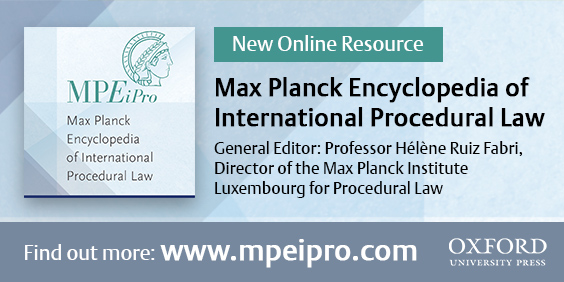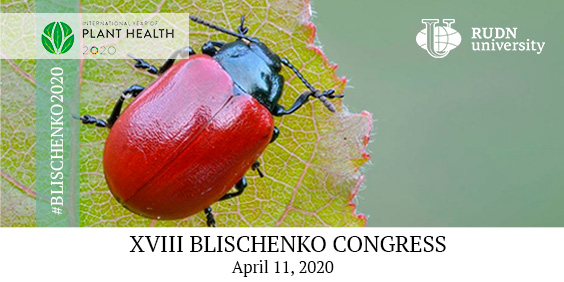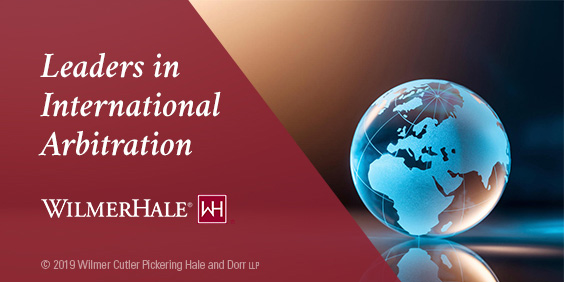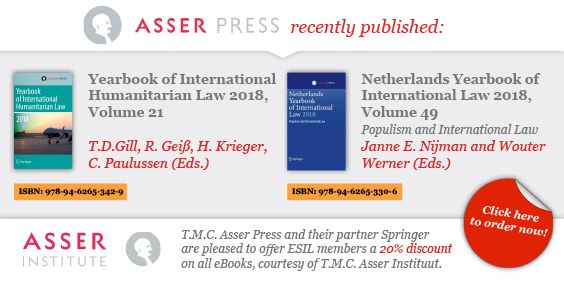ESIL Newsletter: January 2020
Editor: Sandrine Maljean-Dubois (University of Aix-Marseille)
 In this issue
In this issue
1. President’s Message
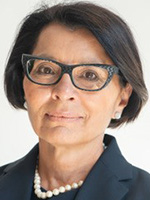
Photini Pazartzis
2020 heralds a new decade and our Society will be celebrating its 20th anniversary in 2024. In the past two decades, the Society has consolidated its presence in the European and international sphere and continues to grow both in diversity and in substance. A glance at the Society’s website shows the many activities, including conferences, Research Fora, interest group activities, Reflections and editorials, lectures, the Teaching Corner and numerous other initiatives organized by ESIL. The Society also runs the ESIL Book Series published by OUP, under the coordination of Anne van Aaken, where selected papers from ESIL events are published. Three volumes have already been published, two more are forthcoming.
All these activities highlight the Society’s purpose as a space for meeting and exchanging ideas on general and more specific themes within the area of international law, as well as questioning its benefits and failures. With Brexit underway, other challenges emerge or continue to raise questions about the capacity of international law and international institutions to effectively address current and future challenges, from migration movements to climate change, to name but just a couple.
The most recent ESIL events included a joint event organized by ESIL and the Catolica Global School of Law in Lisbon in October on Socially Responsible Foreign Investments under International Law. A month later ESIL organized a joint event in Warsaw, with our colleagues from the Warsaw School of Economics, Kozminski University and the Institute of Law Studies of the Polish Academy of Sciences on The Crisis of the Multilateral International Order: Causes, Dynamics and Consequences. Both events were a success, and, more importantly, provided an opportunity to interact and strengthen our ties with scholars and practitioners from various areas of Europe.
The preparations for our next main event, the annual Research Forum, hosted by the University of Catania on 23-24 April, are well underway. This Research Forum continues the tradition of promoting the Society’s engagement with research in progress by early career members of the Society. This year’s theme is Solidarity: The Quest for Founding Utopias of International Law, a topical question to ask at the beginning of this new decade… Our next Annual Conference will be held in Stockholm on 10-12 September 2020. The overall theme is Changes in International Law-Making: Actors, Processes, Impact and the call for papers’ deadline is 31 January 2020. I will give more updates in our next Newsletter.
We also look forward to continuing strengthening our ties with sister societies. Other events are being planned in Moscow, Krakow, Strasbourg and Tbilisi. The Society receives more and more requests to organize activities and we hope to be able to respond to these. ESIL Interest Groups are also keeping busy and are a vibrant part of the Society. Let me say that all these activities require discussion, planning and a lot of work by the Board members, who are each entrusted with overseeing various tasks and have many responsibilities, apart from their ‘day job’! I thank each and every one of them for their valuable support. I also take this opportunity to welcome Neha Jain, who has recently moved to the European University Institute and has been co-opted to the Board as our liaison with the EUI, succeeding Joanne Scott. And of course, nothing can happen without a strong Secretariat to handle the heavy administrative burden of our ever-expanding Society, so many thanks to Joyce Davies and Demeter Chanter!
In all our activities, the Society is dependent on its membership. We encourage all current members to renew their membership and to encourage other colleagues to join the Society. Details on individual and lifetime membership can be found on the ESIL website.
Wishes to all for a productive New Year!
Photini Pazartzis
2. Guest Editorial: Where has all the power gone?
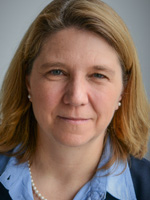
Kerstin Von der Decken
Thirty years ago, on 9 November 1989, the Berlin Wall fell. Most people I know remember where they were when this historic event took place. I myself was a law student at the beginning of my second year in the then capital of West Germany, Bonn. During the weeks before, my friends at the law school and I had felt – like thousands of others – that something was about to happen in East Germany. This is why we had decided to drive to Berlin on a Thursday after class – on 9 November 1989. The day before, however, we cancelled our plans. The person in our group who had the biggest (and safest) car had to stay in Bonn due to his student job. Can you imagine how and what I felt when I saw the pictures of people dancing on the Berlin Wall on television the next night? The only thing that comforted me ex post was the fact that I made up for it some weeks later: I spent New Year’s Eve 1989 in Berlin – dancing on the Berlin Wall with a group of friends and thousands of strangers. Oh, what a night!
The fall of the Berlin Wall, however, was not only an exciting and unforgettable moment in history. It marked the beginning of a new era. The end of the Cold War lead to a period of hope, new aspirations and creative power. The international community stood together, and rebuilt the international legal order. My professors of public international law in Bonn, Aix-en-Provence and Trier explained to us in the 1990’s how the world was changing for the better: the Security Council qualified grave and systematic violations of human rights and of international humanitarian law as a threat to peace. The number of peacekeeping missions reached an undreamed number. During the Rio de Janeiro Earth Summit, the Framework Convention on Climate Change, the Convention on Biological Diversity, and, inter alia, the Agenda 21 were adopted. The World Conference on Human Rights proclaimed the Vienna Declaration and Programme of Action. The UN High Commissioner for Human Rights and other human rights institutions were established. The World Trade Organization was founded. The creation of the ICTY, the ICTR and the ICC symbolised the renaissance of international criminal law.
Today, I am a professor of public international law myself. And what do I (have to) tell my students? The enthusiastic times of building a new and better international order are over. What is more, the international community is doing a backward roll: what started as an insurgency in Syria has become an international armed conflict where several States, including most of the veto powers, are involved. The Security Council is blocked and does not fulfil its responsibility as a guardian of peace and international security any longer. Russia invades Ukraine and annexes Crimea. Turkey invades north Syria. Massive and grave human rights violations have become every day phenomena. Yet, the United Stated States withdraws from the Human Rights Council. Several States (announced their intention to) withdraw from the ICC Statute. The international community could not agree but on the weak Paris Agreement to stop climate change. The dispute settlement system of the WTO is de facto non-functioning.
Where has all the power gone? 30 years passing. Where have all the leaders gone? 30 years ago. When will they ever learn? When will they ever learn?
3. 2020 Research Forum

The 2020 ESIL Research Forum will take place on Thursday 23 and Friday 24 April at the Department of Law of the University of Catania. ESIL Interest Groups will arrange workshops for early-career scholars on the theme of the Forum on Thursday 23 April.
ESIL Research Fora are scholarly conferences that promote engagement with the research in progress of ESIL members.
The 2020 Research Forum addresses the topic: Solidarity: The Quest for Founding Utopias of International Law. The Forum aims to inspire thoughtful reflections on the genealogy of international solidarity by focusing on the actors, norms and processes influencing its evolution over time. Beyond the search for definitions, the scope of the Forum is to explore transformations and practical manifestations of this long-standing principle in the international legal community. Special attention will be given to international solidarity as interpreted by international and domestic courts and tribunals and to the analysis of some key areas where solidaristic paradigms have led to either positive outcomes or controversial repercussions.
4. 2020 Annual Conference

Preparations for the 2020 ESIL Annual Conference are underway. The conference will take place in Stockholm on the 10-12 September, preceded by pre-conference workshops on 9 September. The theme is Changes in International Lawmaking: Actors, Processes, Impact. Through 8 forum panels, 12 agorae as well a keynote debate and a concluding panel, ESIL2020 will take stock of these changes and ask what they mean for our discipline, for our various areas of study, as well as for how the world is governed. The reception will be held at the grand City Hall and the conference dinner at Mälarsalen.
The call for papers and IG panel proposals is open and the deadline for submissions is 31 January 2020.
The email address of the conference service is esil2020reg@su.se. For specific questions regarding the programme (relevant for panelists, exhibitors, etc.), contact the local organising committee at esil2020@juridicum.su.se.
5. ESIL Events
 On 22-23 November 2019, an ESIL joint conference entitled The crisis of multilateral international order: causes, dynamics and consequences was held in Warsaw. The event was jointly organized by the Warsaw School of Economics, the Institute of Law Studies of the Polish Academy of Sciences, Kozminski University and ESIL. The conference brought together some 40-50 scholars from various countries of Europe as well as from outside Europe. The programme encompassed seven panels, which focused on the crisis of multilateralism in general international law and in several of its subfields (use of force, human rights, international economic law, etc.). The keynote speeches were delivered by Mary Footer from the University of Nottingham and Malgosia Fitzmaurice from Queen Mary University of London.
On 22-23 November 2019, an ESIL joint conference entitled The crisis of multilateral international order: causes, dynamics and consequences was held in Warsaw. The event was jointly organized by the Warsaw School of Economics, the Institute of Law Studies of the Polish Academy of Sciences, Kozminski University and ESIL. The conference brought together some 40-50 scholars from various countries of Europe as well as from outside Europe. The programme encompassed seven panels, which focused on the crisis of multilateralism in general international law and in several of its subfields (use of force, human rights, international economic law, etc.). The keynote speeches were delivered by Mary Footer from the University of Nottingham and Malgosia Fitzmaurice from Queen Mary University of London.
The main question discussed was whether there was indeed a crisis of multilateralism in contemporary international law. Unsurprisingly, no uniform answer was provided but it was interesting to note that the general tone of the speeches and discussions was a reasonably optimistic one. From the ESIL perspective, the conference in Warsaw was an important event not only because of the high-quality presentations and interesting debates but also because it epitomized the current effort of ESIL to become more present in the countries of Central and Easter Europe.
6. ESIL Reflections
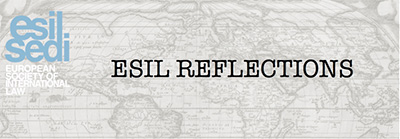
ESIL Reflections are short papers published on the ESIL website. ESIL Reflections offer up-to-date reflections on current issues in international law. The Reflections cover a wide range of topics relating to current developments in international law and practice as well as theoretical reflections in a way that is relatively accessible to non-experts. The aim is to foster discussion between ESIL members and international law scholars and practitioners more generally – in Europe, but also beyond. ESIL Reflections are published online and distributed freely to ESIL members.
The editors are Federico Casolari, Patrycja Grzebyk, Ellen Hey, Guy Sinclair and Ramses Wessel (editor-in-chief).
ESIL Reflections are short papers (3000-4000 words) that argue one particular point that may trigger further debate in the scientific community. Extensive referencing is to be avoided.
Latest publications are:
- Filling the Empty Box – A Principled Approach to Meaningful Human Control over Weapons Systems, by Daniele Amoroso and Guglielmo Tamburrini
- Rethinking the Conservation of Marine Biodiversity beyond National Jurisdiction – From ‘Not Undermine’ to Ecosystem-Based Governance, by Vito De Lucia
7. SSRN Series
The ESIL SSRN Paper Series features papers presented at ESIL events (Annual Conferences, Research Forums, and Interest Groups workshops). Publication in the ESIL Series enables authors to disseminate their work widely and reach broader audiences without the usual delays involved in more traditional means of publication.
The SSRN papers from the 2018 Annual Conference in Manchester (International law and universality) are available online.
The SSRN Series editors are:
- 2019 Research Forum in Gottingen: Pierre d’Argent, Photini Pazartzis & Christina Binder
- 2019 Annual Conference in Athens: Gleider Hernández & Sandrine Maljean-Dubois
- 2020 Research Forum in Catania: Gleider Hernández, Sandrine Maljean-Dubois & Paolo Farah
8. News from Interest Groups

ESIL Interest Groups are a vital part of the Society’s success and activities. A list of the groups is available on the ESIL website. Reports of recent activities and upcoming events are available in the full text of the Newsletter.
Interest Group on the History of International Law
We warmly welcome Jaanika Erne from the University of Tartu and John Morss from Deakin Law School on board the Coordinating Committee! Frederik Dhondt from the Vrije Universiteit Brussel and the University of Antwerp, Jan Lemnitzer from the University of Southern Denmark, and Markus Beham from the University of Passau will continue their work for another term. The team would like thank Martin Clarke and Hossein Piran for their contributions to the successful work of the Committee during its last term.
Please continue to check our blog for updates at http://esilhil.blogspot.com
Interest Group on International Economic Law
On 14-15 November 2019, the Amsterdam Center for International law hosted the International Economic Law and Security Interests conference, organized by Stephan Schill and Geraldo Vidigal of the Amsterdam Law School; the ESIL IG on International Economic Law was represented by Tobias Stoll and Elisa Baroncini. The conference was a great success, gathering scholars and practitioners from all over the world and offering in-depth analyses of the legal and political elements of this issue of emerging importance in the debates about the governance of the world economy.
New events planned by the IG will be the call for papers for workshops at the ESIL Research Forum in Catania on the topic of solidarity, the St. Petersburg State University on Groups and Spaces in International Economic Law: Focus on the BRICS Countries, and in Bologna / Ravenna on the WTO Reform Process.
Interest Group on the International and European Rule of Law
The newly set-up Interest Group on the International and European Rule of Law is dedicated to studying the supra-, inter-, and transnational dimensions of the rule of law. The IG intends to offer a forum for in-depth academic discussion and scholarly exchange for all ESIL members with an interest in the topic and its aspects in all their variety. It will organize side events at the ESIL Annual Conferences and the ESIL Research Fora, as well as additional conferences, workshops and meetings as appropriate. IG members are encouraged to propose activities on topics falling within the IG’s thematic ambit to the Coordinating Committee. The IG intends to publish its work in appropriate formats to disseminate the outcome of its activities. The IG is open to cooperative activities with other thematically proximate research groups and institutions, both within and outside the ESIL framework.
9. ESIL Membership Renewal
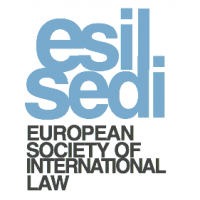 ESIL membership is for the calendar year, from January to December. If you are not a 5-year member or a lifetime member, or if you have not yet responded to the recent reminder emails, it is now time to pay your fees for the year ahead. You are strongly encouraged to do so as soon as possible in order to have access to your online EJIL subscription and to be included in the 2020 ESIL Interest Group membership lists.
ESIL membership is for the calendar year, from January to December. If you are not a 5-year member or a lifetime member, or if you have not yet responded to the recent reminder emails, it is now time to pay your fees for the year ahead. You are strongly encouraged to do so as soon as possible in order to have access to your online EJIL subscription and to be included in the 2020 ESIL Interest Group membership lists.
Paying the fee is quick and easy: log in to the online membership system, click on ‘Edit Account Information’ to check that your account details are up to date, and then proceed to payment. There are now 16 ESIL Interest Groups; make sure you have indicated all those you wish to join. You can join or leave any group at any time just by ticking the box next to the IG.
Members who wish to make a commitment to 5-year or to lifetime membership are very welcome to do so.
Last but not least, please encourage your colleagues to join the ESIL network: the Join ESIL button is clearly visible on the ESIL website home page.
